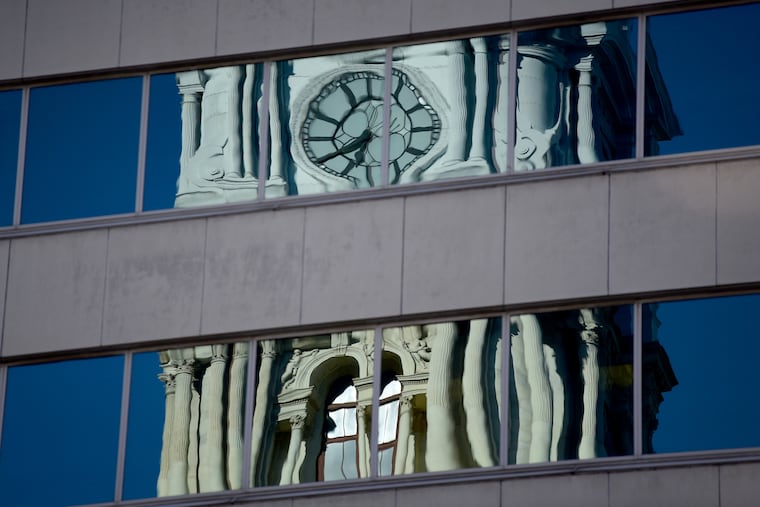Philadelphia’s payroll system debacle should be an outrage to all taxpayers | Editorial
What was supposed to be a state-of-the-art payroll system for Philadelphia city workers has been malfunctioning for at least six months, overpaying and underpaying thousands of employees. On Thursday, city councilman-at-large Allan Domb called for an investigation.

Messed up is too gentle a term to describe OnePhilly, the city’s spectacularly unreliable new payroll system. But The Inquirer’s editorial standards prohibit the use of more colorful language. Likewise, the standard audit of OnePhilly that the City Controller’s Office launched in August is appropriate, but not expansive enough, for the sort of deep-dive city Councilman-at-large Allan Domb called for Thursday.
Domb wants Controller Rebecca Rhynhart to open an investigation into the city’s process of selecting the company that built the new software system, the implementation of which was delayed for more than three years. He wants the management of the $40 million project, and other issues The Inquirer began reporting at the beginning of May, to be reviewed as well.
Rhynhart agrees, and says the ongoing audit, set to be completed in January, already has been augmented to assess the scale of the errors and the scale of the problem.
Clearly, the problem is enormous: As reporter Sean Collins Walsh wrote Thursday, OnePhilly “has led to hundreds of reports of incorrect paychecks, tax withholdings, and benefits calculations for city workers since it was launched in March and is the subject of multiple lawsuits against the city by municipal unions.”
» READ MORE: Councilman Allan Domb calls for investigation of city’s payroll software ‘boondoggle’
The technology that was supposed to reconcile and unite obsolete or disparate payroll operations into a seamless system for Philly’s 30,000 municipal workers continues to malfunction. A spokesman for Mayor Jim Kenney said last week that about 12% of the workforce, or 3,800 employees, have been paid for hours they did not work.
That should be an outrage to every taxpayer. And the city still does not have a full accounting of how much has been overpaid or underpaid in total, and to how many. Even after the final amounts City Hall owes affected workers, and other affected workers owe the city, are ascertained, settling up may not be so simple. The president of one of the largest unions representing municipal workers said recently that some members are worried about how quickly they may be required to reimburse the city for full amounts they were overpaid. (Though it’s hard to be sympathetic to the plight of workers who clearly knew they were getting more than they were owed and apparently spent it or didn’t bother reporting it.)
The damage that has been done to household budgets, taxpayer confidence, and morale ought to be a warning that Philly ought to pause, at least temporarily, before starting significant IT-related projects. There needs to be a full review of what happened so that it doesn’t happen again.
“People aren’t being paid correctly. They’re not receiving overtime. Or they’re being overpaid,” Domb said. “This is insane. And it needs to be fixed.”
Last year, in another major money mess, Domb urged Rhynhart to investigate how the city lost track of $33 million from its largest cash account and made millions in accounting errors. That was unrelated to the current payroll computer glitch, but both lead to the same bottom line: If the city wants our money, it needs to be less cavalier about how it manages those dollars.